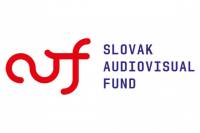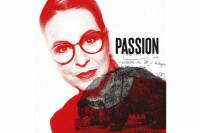BRATISLAVA: Peter Bebjak’s The Rift / Trhlina has set a new record for a Slovak film opening in Slovakia, with 83,266 admissions and 494,386 EUR gross. The film was released by Continental Film on 24 January 2019.
Year 2018 proved not to be as successful for the Slovak cinema as the extraordinary year of 2017, as it saw a decline in general box office as well as the box office for domestic films.
BRATISLAVA: Thirty projects registered in 2018 for the 20% cash rebate at the Slovak Audiovisual Fund, compared to 12 in 2017 and four in 2016. The estimated budget for 2019 is 4.7 m EUR.
BRATISLAVA: Experienced Slovak documentary filmmaker Robert Kirchhoff deals once again with the complicated political history of the region and in the Slovak/Czech coproduction All Men Become Brothers / Všetci ľudia budú bratia he focuses on Alexander Dubček, leader of the Prague Spring 1968 and chairman of the Parliament after the Velvet Revolution. This documentary is currently entering the second phase of shooting and it should be finished by the end of 2019.
BRATISLAVA: Slovak director Jonáš Karásek wrapped shooting on his second feature film Amnesty / Amnestie focusing on the turbulent period around and right after the Velvet Revolution. This Slovak/Czech coproduction produced and co-written by Maroš Hečko is expected to be released in November 2019, on the 30th anniversary of the revolution.
Israeli Yona Rozenkier’s semi-autobiographical first feature is a take on culture of violence, militarism, and masculinity - not necessarily limited to the director’s home country. Having debuted in Locarno, The Dive follows three brothers reunited for their father’s funeral and their different approach to military service in the early days of the 2006 Lebanon War. A family drama borrowing from the western genre, the film never really comments on the military actions of Israel, but rather keeps the focus on the soldiers’ perspective, dealing with topics of PTSD, and the cultural impact of the conflict.
The Dive is set in a nearly empty kibbutz, with only a couple of families left, and around the vast deserted lands nearby. Here arrives a solitary hero with a nebulous past, Yoav, to bury the father who always found him a disappointment. Having lost touch with his family for years, he is reunited with Itai (played by the director himself), a rather bitter but proud brother, and Avishai, the youngest sibling about to be shipped off to war after only a few days of training. The cleverly structured script gradually adds layers to the conflict between Yoav and Itai, but it seems to always circle back and return to the issue of fighting for one’s country. Itai finds it a duty, while Yoav doesn’t see any value in it anymore. We never really learn what happened to Yoav during his previous deployment, but his anxiety attacks are telling, as are his attempts to persuade the youngest, scared brother not to return to his unit.
The film shows us how violence and militarism are embedded in our culture. More often than not, issues between the brothers turn into some form of aggression, like in the scene set in the old ruins of a building where Itai ‘kills’ Yoav with a paintball gun, or during their war-like hunting expeditions on the trail of a wild animal. The film suggests we are so used to various forms of aggression in our culture – even in ‘innocent’ games – that we can’t see how they are connected to those horrors of war that we are always quick to condemn. In the most explicit (and somewhat in-your-face) condemnation of (pop)culture, Yoav looks at a poster of Clint Eastwood in ‘western hero’ mode before concluding, “This is all your fault.”
Such a stand makes the film rather universal – it focuses on a soldier who is pushed into the service (because it’s patriotic, or manly, or just right) and on a society in which this common occurrence is deeply ingrained. At the same time, the Israeli setting, with its own specific history of military service, can’t be ignored, though the film never tackles the merits of the ongoing Lebanese War. It rather shows how military service and the constant threat of war influence relations within the family and in day-to-day life. Yoav had to run away from his family and from the military culture it represents, refusing to forgive his father even after his death. And apart from its bursts of violence, the film also shows us inconspicuous details about living as part of such a culture: characters carrying weapons, often advanced automatic ones, way too often; or being so used to a state of war that they can only resort to making cynical jokes about it.
Far from being a pacifist pamphlet, The Dive dissects a culture that takes violence as the norm. And with Yoav abandoning his family even in times of need, it questions his moral compass while refraining from portraying him as a flawless hero. This is another moment that suggests the complexity of the problem and the impossibility of easy answers – which the film never provides.
BRATISLAVA: Wanda Adamík Hrycová from Wandal Production is representing Slovakia at Jihlava IDFF's Emerging Producers programme. FNE spoke with Hrycová about the current situation for documentary filmmaking in Slovakia.
BRATISLAVA: One of Slovakia’s busiest filmmakers, award winning director Peter Bebjak, is in preproduction with the feature film The Report / Správa about Alfréd Wetzler and Rudolf Vrba, two Slovak Jews who managed to escape from Auschwitz in April 1944 and write a detailed report on the concentration camp, which they delivered to the Allies.
BRATISLAVA: Peter Bebjak, winner of Karlovy Vary IFF's award for Best Diector, is working on the 12-episode TV series The Slavs, currently in pre-production. The series is produced by Slovakia’s Wandal Production and European Partnership Media Group.



























